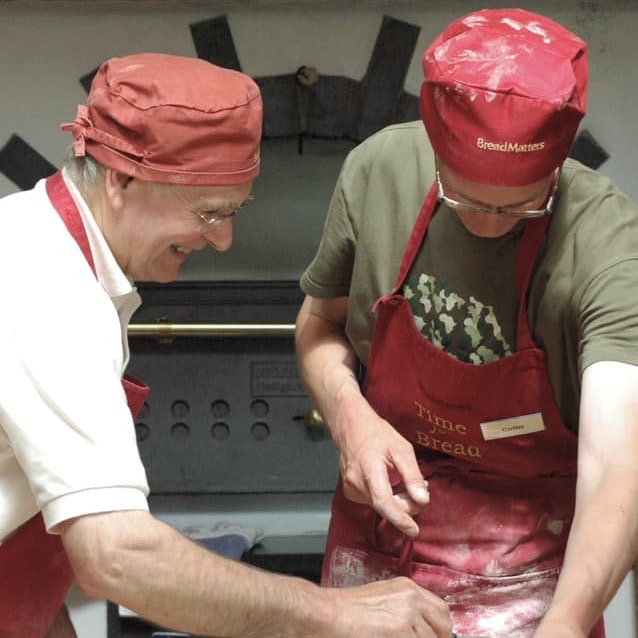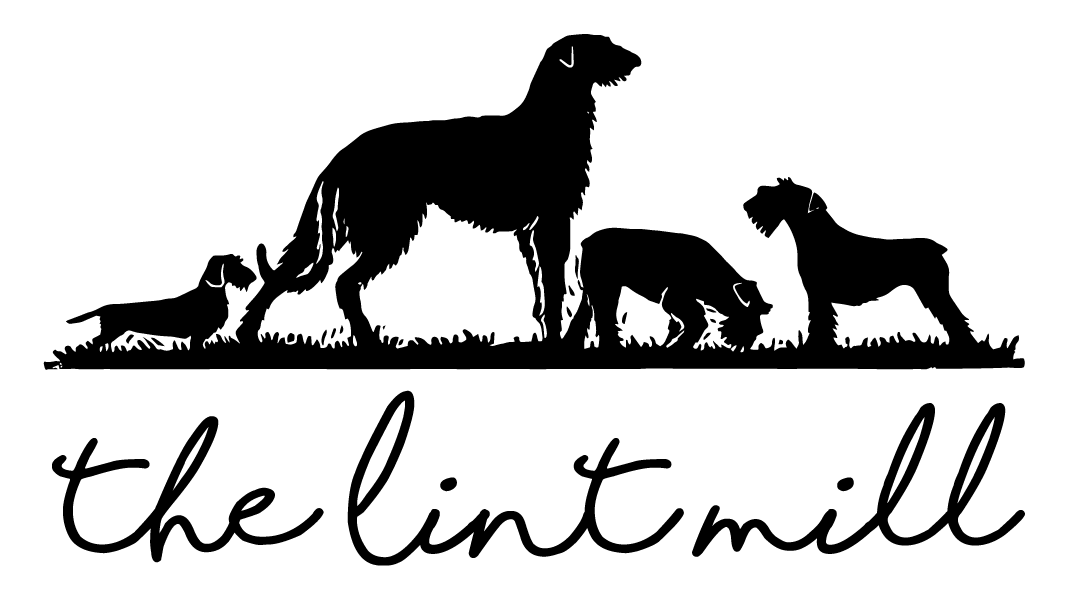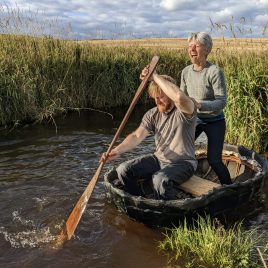
Our Daily Bread
Guests enjoy their freshly baked daily bread at The Lint Mill and it is always a talking point, so this month we are taking a closer look at why Colin’s bread is so good and why it matters to us in so many ways.
Colin first met Andrew Whitley when he participated in one of Andrew’s sourdough bread making courses in 2013 and he has been baking both wheat and rye sourdough bread every day since. With a few more courses under his belt (including one specialising in gluten-free baking) Colin is knowledgable as well as enthusiastic and it has turned out that there is much more to it than kneading. Training with Andrew, one of the pioneers of the Real Bread revolution in the UK and baking bread with home-milled organic grain grown in Scotland turned out to be a political as well as a culinary act. Here’s a little bit of that story.
At the same time as we were moving to The Lint Mill in 2009, Andrew was setting up Bread Matters with his late wife Veronica Burke and they became our near neighbours and friends in Macbiehill. You can read the Bread Matters story here. Over recent years, Bread Matters developed into Scotland the Bread but the aim remains true to Andrew’s essential vision from the mid 70s, and he describes it as “A collaborative project to grow better grain and bake better bread with the common purposes of nourishment, sustainability and food sovereignty.” To get a better understanding of the value of this project, take a look at this lovely short film called Celebrating Scottish Grain.
When we moved here 14 years ago our reason for choosing to live and work on the land was a desire to live in a more environmentally sustainable way but little did we know how much we would learn (and are still learning) by living here. As many of us are facing limits imposed by big supermarkets on buying such taken-for-granted foods as tomatoes, peppers and cucumbers, ‘growing your own’ has become more urgent than ever. Whatever the causes of these shortages, be it the war in Ukraine, cold snaps of crop ruining weather (cf climate change), post-Covid recession, Brexit, rising costs of production, or (more likely) a perfect storm of all these factors, it is asking us to look very carefully at how we have become so divorced from our means of food production.
A few years ago we went on a seed saving course and I remember being truly shocked to discover that the genetically modified seed that is aggressively sold to farmers to ‘increase yields’, by agrochemical and agricultural biotechnology corporations, are known as “terminator seeds” because they are modified to last only one generation. This prevents farmers from re-planting their own seeds throughout the seasons as the GM product produces a sterile seed, which is unable to reproduce. This forces farmers to annually purchase new seeds from the same company. It probably comes as no surprise that there are only six huge corporations that control the global market, the most well known being Monsanto. So none of us, including the farmers who are tasked to produce our food, are really in control of what we can buy, grow and eat. A decade ago we could not have told you what food sovereignty even meant, now it’s all too clear what a vital issue this is. We need to be able to produce healthy, nutritious, chemical-free food – surely it’s a basic human right and if the ability to feed ourselves is also taken away from us what hope is there?
Meanwhile, back to bread…it was Monsanto (now Bayer) who also manufactured glyphosate (Round Up) a weed killer that has been making it’s way into over 60% of our daily bread for decades and has given rise to many campaigns such as the Soil Association’s ‘Not in Our Bread’ campaign calling for the ending of the use of glyphosate on wheat destined for use in bread and factory loaves. Glyphosate was set to be banned at the end of last year but the UK’s departure from the EU at the end of 2020 meant that glyphosate can still be used until December 2025.
It can be hard to feel empowered in the face of this and we can be left wondering what we can do to help. Here are some of the things we do:
- we are organically certified and what we don’t grow or rear ourselves we buy from other organic producers
- we grow as many vegetables as we can
- we buy organic seeds and avoid F1 varieties
- we buy heritage varieties of seed to encourage diverse plants
- we buy grain (and flour) from Scotland the Bread – grown organically in Scotland
We have learned so much on our journey from sustainability to regeneration and we are still learning every day. We are passionate about these things and sharing our home with guests is our way of engaging others in the possibilities of high-quality, low-impact living. Come for a visit you’ll be surprised how much fun living regeneratively can be.
If you would like to buy nutrient dense, exceptionally flavoured, Scottish grown wheat or rye flours, follow this link to the Scotland the Bread Shop.



